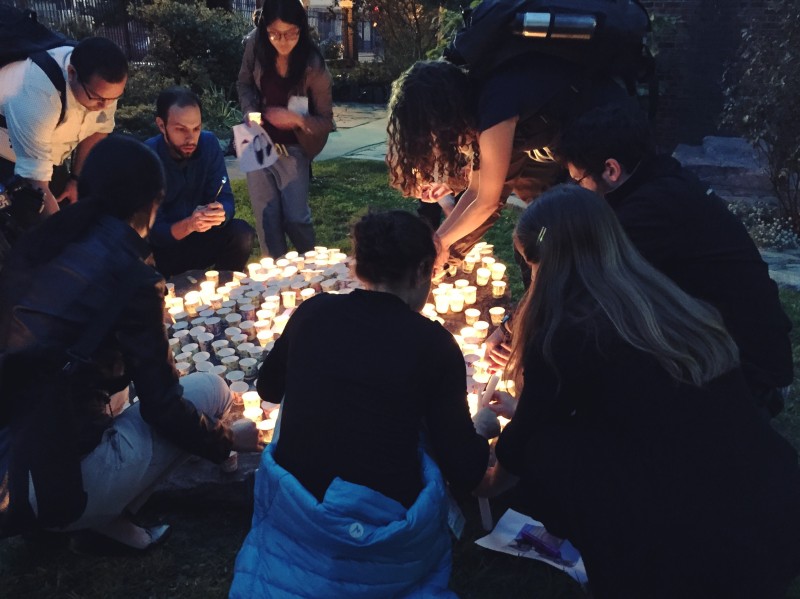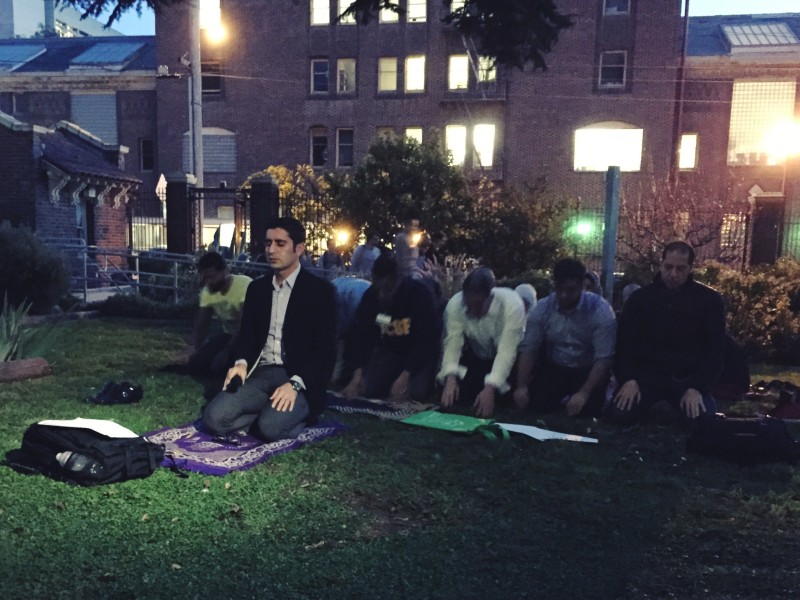More than a hundred people gathered at San Francisco General Hospital on Thursday night to mourn three young Muslims shot to death earlier this week in Chapel Hill, North Carolina.
One of the victims was the sister of an S.F. General physician, Dr. Suzanne Barakat.
During Thursday night's event, a crowd watched silently as a group of students kneeled to pray on the grass in front of the hospital's Family Health Center. Earlier in the day, thousands had gathered for a funeral in North Carolina for the victims -- Barakat's brother, Deah Shaddy Barakat, 23; his wife, Yusor Mohammad Abu-Salha, 21; and her sister, Razan Mohammad Abu-Salha, 19.

Authorities in Chapel Hill have charged a neighbor, Craig Stephen Hicks, 46, with three counts of first-degree murder. Police and Hicks' wife have suggested the shooting arose from a dispute over parking. Family members of the victims say the killing was a hate crime and have called on the FBI to investigate. (The FBI said late Thursday it's opening a "parallel preliminary inquiry" into the killings.)
Dr. Barakat's colleagues praised the three victims' commitment to community service and urged those gathered Thursday night to share their example. Barakat's brother was a student at the University of North Carolina graduate school of dentistry and had been raising funds to travel to Turkey to treat Syrian refugee children.

